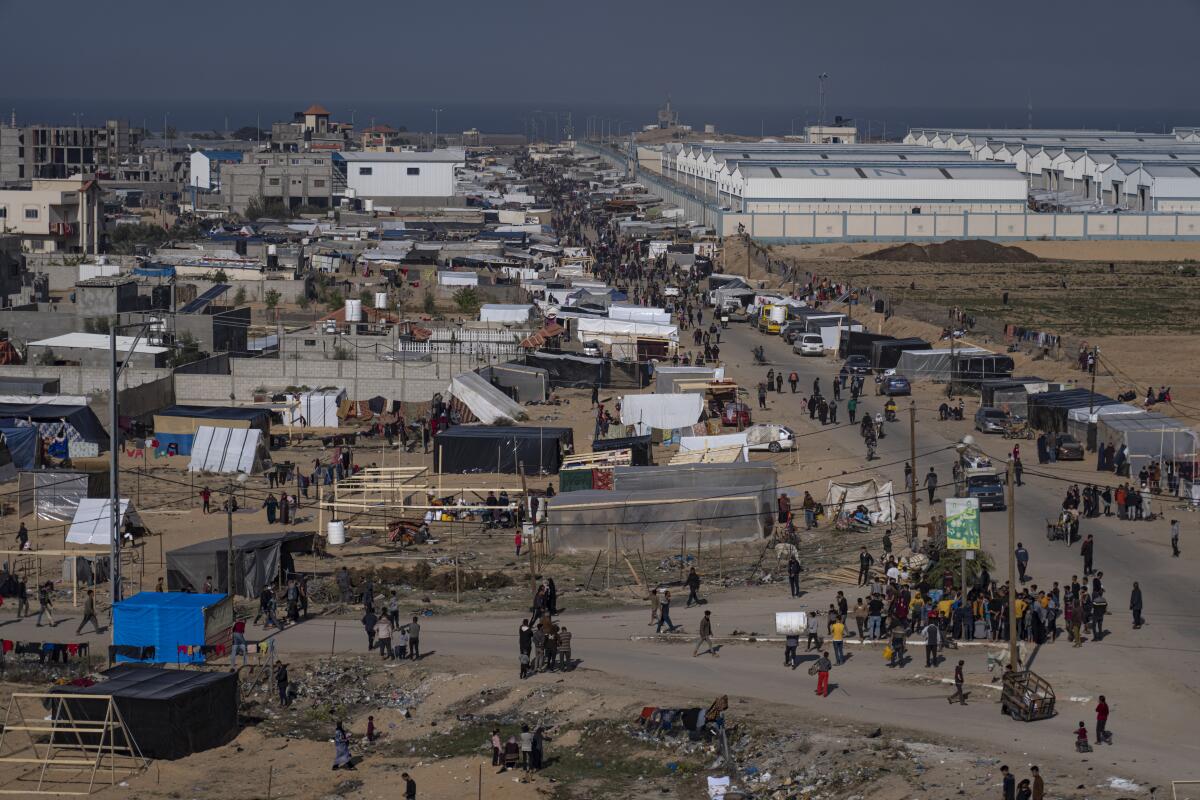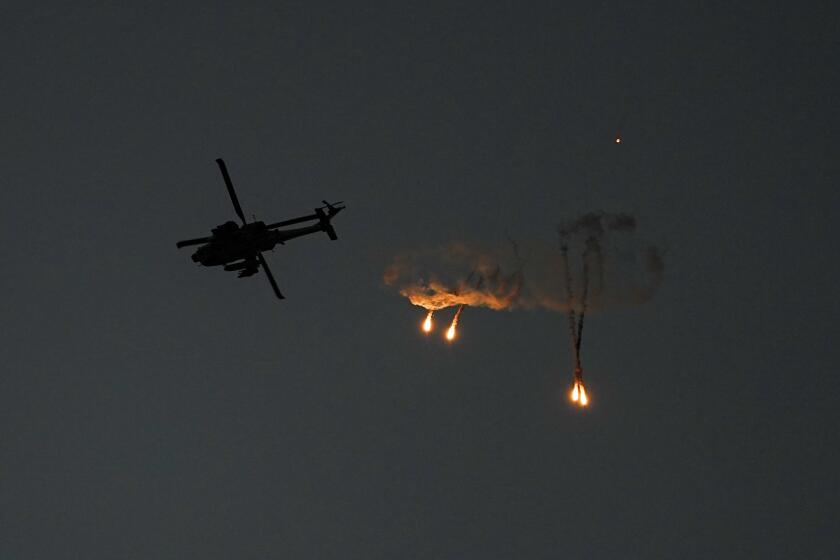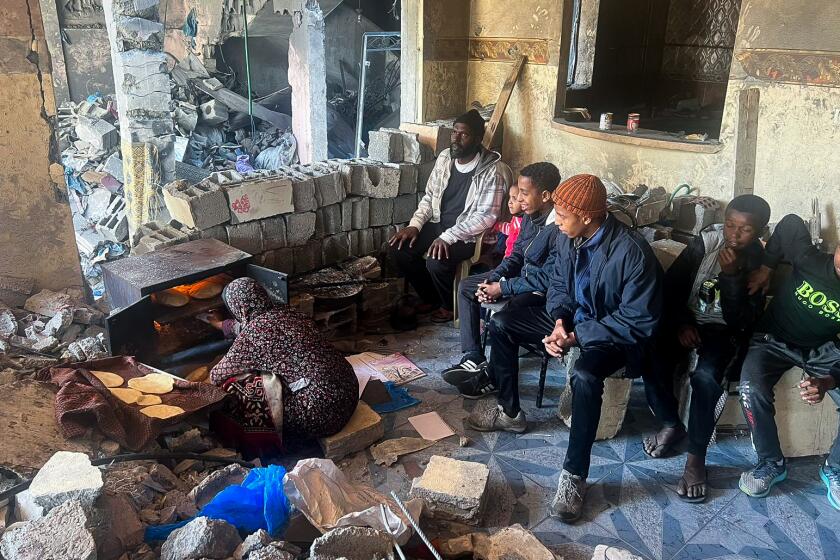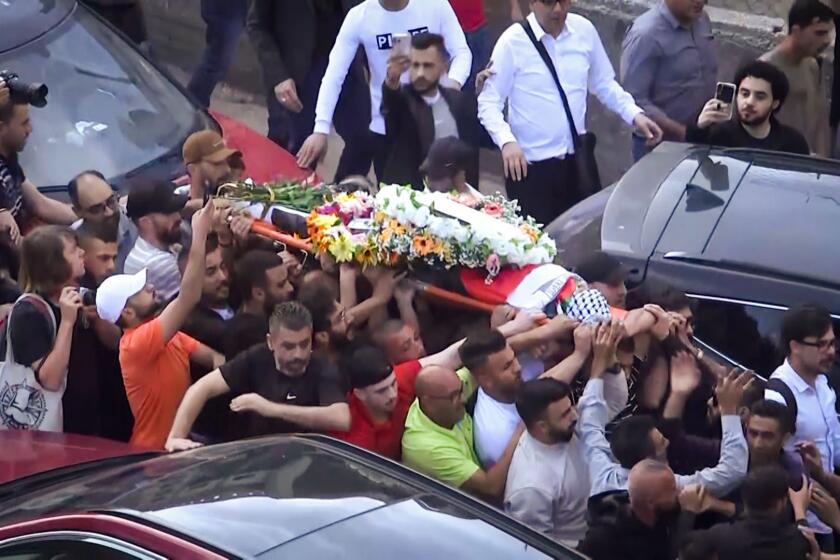Global journalist group says Israel-Hamas war is beyond compare for media deaths

- Share via
BRUSSELS — With a journalist or media worker killed every day on average in the Israel-Hamas war, the head of the global organization representing the profession said Monday that it has become a conflict beyond compare.
About 60 have been killed since the Oct. 7 start of the war, already close to the same number of journalists killed during the entire Vietnam War half a century ago. Other brutal wars in the Middle East have not come close to the intensity of the current one.
“In a war, you know, a classical war, I can say that in Syria, in Iraq, in ex-Yugoslavia, we didn’t see this kind of massacre,” Anthony Bellanger, the general secretary of the International Federation of Journalists, told the Associated Press.
And since the end of the weeklong cease-fire in Gaza on Friday, the misery has continued, he said: “Unfortunately, we received the bad news this weekend — after the end of this cease-fire — and at least three or four were killed.”
A Times special correspondent in Gaza offers a personal account of living in a place where nowhere feels safe.
Bellanger said they are mourning around 60 journalists, including at least 51 Palestinian ones and also Israeli and Lebanese. Most were killed during Israel’s bombardment in the Gaza Strip. He said Israeli journalists were also killed during Hamas’ attack in southern Israel that set off the war.
He said those numbers are based on all available sources that the federation uses for its annual report.
Along with the human toll, the premises of many media organizations in Gaza have been destroyed, he said. He estimated about 1,000 journalists and media workers were in Gaza before the conflict and said that now, no one can get out.
And yet amid the rubble, local journalists continue to do their job, said Nasser Abu Baker, president of the Palestinian Journalists’ Syndicate.
‘I just don’t know where we’ll go.’ It’s a question Palestinians ask over and over in Gaza as Israel ramps up bombardment after Hamas truce collapsed.
“They lost their families and they continue their work,” he said. “They are without houses and they continue their work. ... Without food, without the security for them, without their families. Also, if their families are still alive, they are not with their families because they are living or sleeping in the hospitals.”
Bellanger said Israeli authorities were not responsive.
“I called the Israeli government, but they didn’t reply. And when I went to Palestine a few days ago, I proposed to the government press office to have a meeting, just to have a follow-up about this call. But nobody replies,” he said.
Israel has said it makes every effort to avoid killing civilians and accuses Hamas of putting them at risk by operating in residential areas.
The International Federation of Journalists and Reporters Without Borders have called on International Criminal Court prosecutors to investigate the deaths of journalists and media workers, and ICC chief prosecutor Karim Khan has visited the area.
Shireen Abu Akleh, a veteran Al Jazeera journalist and a U.S. citizen, was shot while reporting on an Israeli raid in the West Bank town of Jenin.
The International Criminal Court’s prosecution office is already investigating the actions of Israeli and Palestinian authorities dating to the Israel-Hamas war in 2014. The probe can also consider allegations of crimes committed during the current war.
Khan has called on Israel to respect international law but stopped short of accusing the country of war crimes. He called Hamas’ Oct. 7 attack a serious violation of international humanitarian law.
Israel argues the International Criminal Court has no jurisdiction in the conflict because the Palestinian territories are not an independent sovereign state. Israel isn’t a party to the treaty that underpins the ICC and is not one of its 123 member states.
Bellanger didn’t see sudden change on the ground coming soon but said that as the chief of the global journalism network, “I don’t have the right to be pessimistic.”
More to Read
Sign up for Essential California
The most important California stories and recommendations in your inbox every morning.
You may occasionally receive promotional content from the Los Angeles Times.













